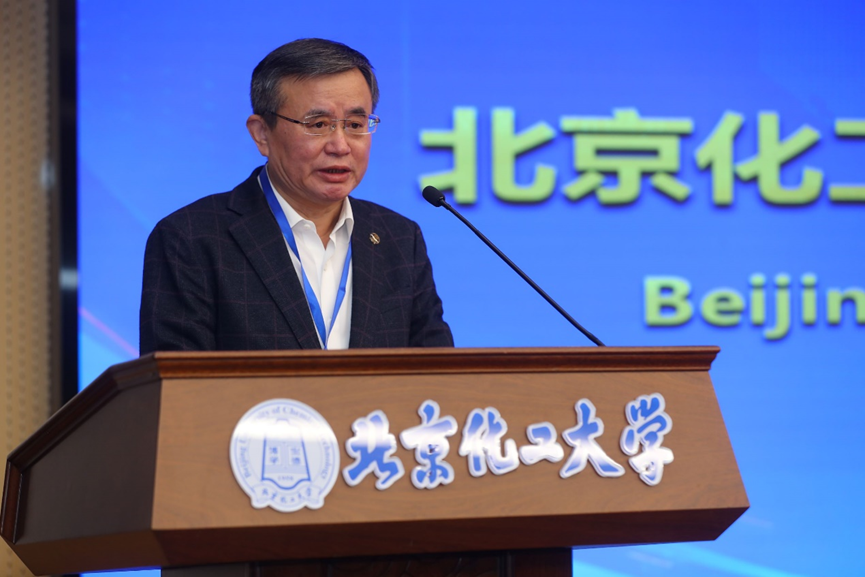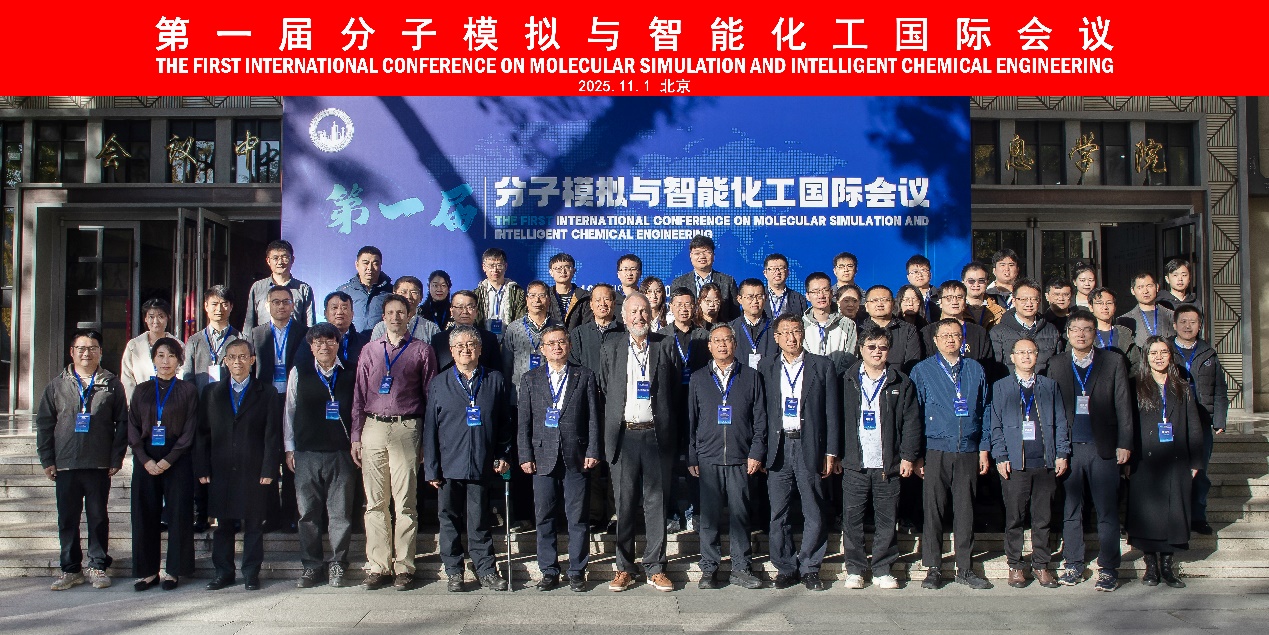On November 1–2, the First International Conference on Molecular Simulation and Intelligent Chemical Engineering was successfully held at the Campus of Beijing University of Chemical Technology (BUCT). The conference brought together experts, scholars, and young researchers from more than 20 universities, research institutes, and enterprises, including Imperial College London, Tohoku University (Japan), Tsinghua University, Fudan University, China University of Petroleum - Beijing, and Taylor & Francis Group. Prof. Feng Wang, Vice President of BUCT, and Prof. Nick Quirke, Professor at Imperial College London and Editor-in-Chief of Molecular Simulation, were invited to attend and deliver speeches at the opening ceremony, which was chaired by Prof. Daojian Cheng, Dean of the College of Chemical Engineering at BUCT.

In his speech, Vice President FengWang first extended warm congratulations on the successful convening of the conference and a sincere welcome to all participants. He pointed out that under the current wave of scientific and industrial revolutions, the deep integration of molecular simulation and intelligent chemical engineering is far more than a simple technological combination—it represents a profound paradigm shift. He emphasized that the synergy between high-precision “computational microscopes” and powerful “intelligent brains” has fundamentally transformed the traditional R&D model of chemical engineering, greatly accelerating the transition from laboratory research to industrial applications. This integration provides promising new solutions to major global challenges such as energy, environment, and health.
As a national “Double First-Class” university committed to leading China’s chemical engineering education, BUCT is actively integrating its multidisciplinary strengths to foster the emerging field of intelligent chemical engineering and to remain at the forefront of national scientific and technological innovation. President Wang expressed his firm belief that this high-level international platform will stimulate the collision of ideas, foster intellectual synergy, and spark new collaborations.
In his address, Prof. Nick Quirke vividly reviewed the evolution of molecular simulation—from an “academic curiosity” forty years ago to today’s deep integration with artificial intelligence. He highlighted that this combination is driving a transformative shift from chemical design to chemical intelligence. Simulation, he noted, is no longer merely a post-experimental verification tool but, together with AI, has become an “intelligent filter” prior to large-scale production—significantly accelerating the discovery and design of new materials. Prof. Quirke remarked that this conference provides a valuable platform for global experts to explore this rapidly developing interdisciplinary frontier, inspire new ideas, and promote meaningful collaborations.
Conference Overview:
The International Conference on Molecular Simulation and Intelligent Chemical Engineering aims to promote the deep integration of molecular simulation and other theoretical computational methods with artificial intelligence. The conference seeks to facilitate paradigm innovation in chemical thermodynamics modeling, chemical process design, and new materials research driven by AI. It serves as a high-level academic exchange platform for experts, scholars, researchers, and industry leaders to discuss frontier topics and share the latest research outcomes.
This conference series is jointly organized by the Chemical Engineering Committee of the Chemical Industry and Engineering Society of China and the Editorial Office of Molecular Simulation. The first conference was hosted by the College of Chemical Engineering, Beijing University of Chemical Technology.

